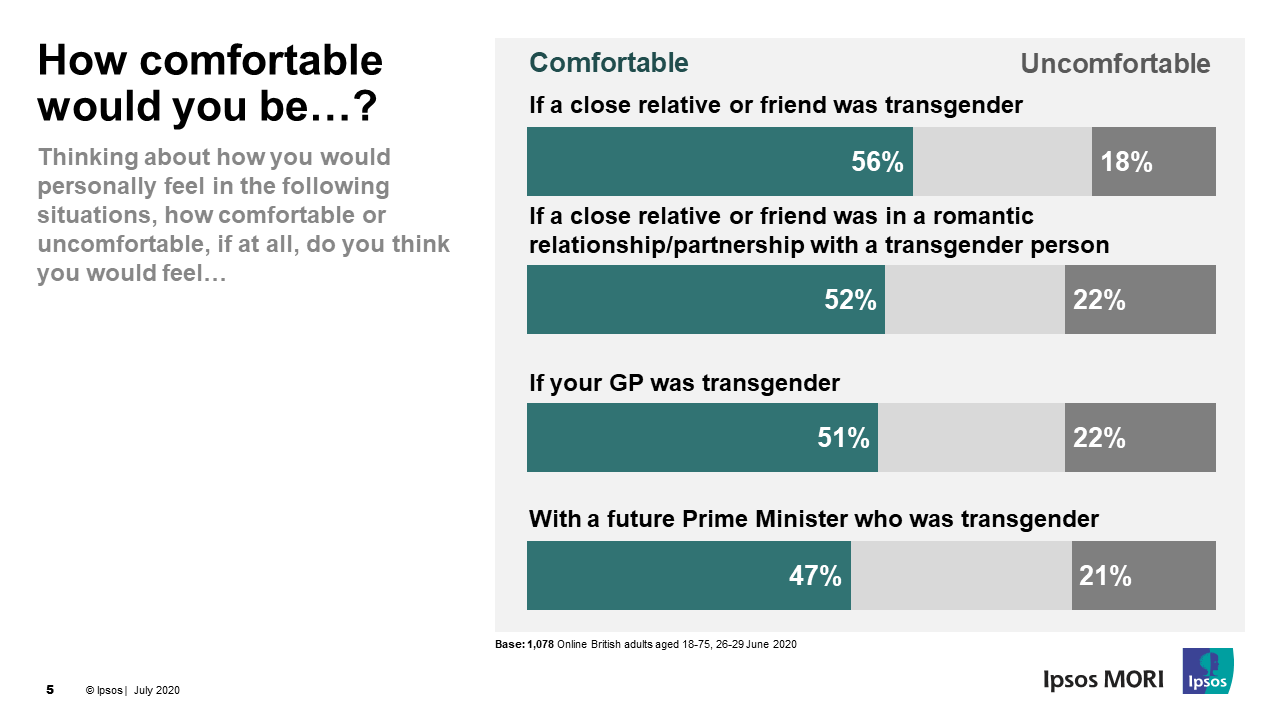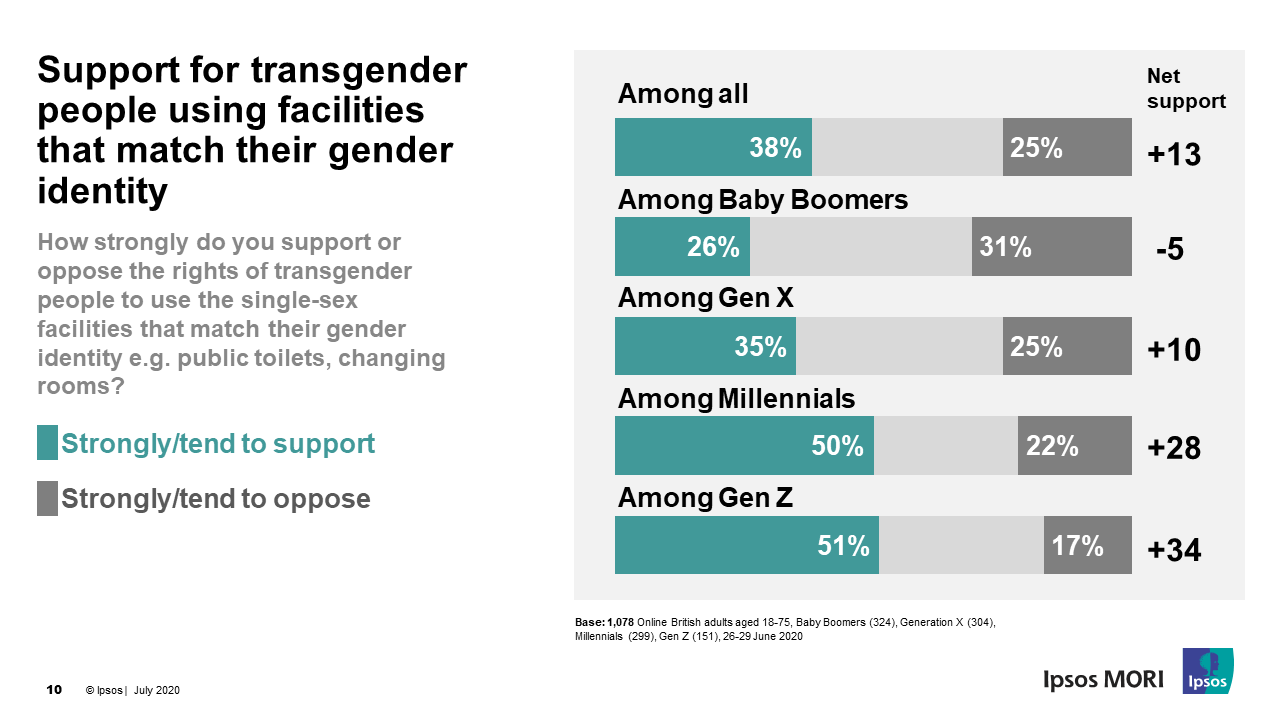Majority of Britons say that transgender people face discrimination in Britain
New research from Ipsos carried out online among British adults aged 18-75 finds that 70% of Britons believe that transgender people face discrimination, with a quarter (26%) saying they face a great deal.
Most would feel comfortable with transgender people in different settings, but still one in five say they would feel uncomfortable. Around half of Britons say they would be comfortable if a close friend or relative was transgender (56%), if their GP was transgender (51%) and if a future Prime Minister was transgender (47%), with around one in five saying they would be uncomfortable (18%, 22% and 21% respectively).
 However, acceptance differs significantly by political orientation, gender identity and age – with Labour voters, women and Gen Z more likely to feel comfortable with transgender people in different scenarios. For example, about two-thirds (68%) of Gen Z say they would be comfortable if a close friend or relative was transgender compared with 62% of Millennials, 55% of Gen X and just half (49%) of Baby Boomers.
However, acceptance differs significantly by political orientation, gender identity and age – with Labour voters, women and Gen Z more likely to feel comfortable with transgender people in different scenarios. For example, about two-thirds (68%) of Gen Z say they would be comfortable if a close friend or relative was transgender compared with 62% of Millennials, 55% of Gen X and just half (49%) of Baby Boomers.
Biological sex and gender identity
Regarding the question often at the centre of trans rights debates, public opinion falls more on the side of gender identity as separate from biological sex. Just over half (54%) of the public think gender identity doesn’t have to be directly linked to biological sex. This is compares with three in 10 (30%) who think gender and biological sex are always linked, while 14% don’t know. Women are more likely to think that gender can be separate from biological sex – with 59% thinking this compared with just 49% of men.
Opinion is split regarding the progression of transgender rights.
A third (33%) believe transgender rights haven’t gone far enough. Yet, one in five think transgender rights have gone too far in Britain (19%), and another one in five say they have gone as far as they should (21%) (a quarter say they don’t know).
Four in ten (38%) support the rights of transgender people to use public facilities that match their gender identity (e.g. toilets or changing rooms), while a quarter oppose this (25%). Women are more supportive of transgender rights to use public facilities that match their gender identity compared with men (43% vs 33%) ).
Younger people are more accepting, familiar with, and supportive of transgender people
Support for transgender rights differs significantly with age – over half of Gen Z (56%) say transgender rights have not gone far enough compared with 39% of Millennials, 33% of Gen X and just one in five (20%) of Baby Boomers. In addition, half of Gen Z (51%) and Millennials (50%) support transgender people using public facilities that match their gender identity compared with a third of Gen X (35%) and just a quarter of Baby Boomers (26%).
 Younger people are also far more likely to say they are familiar with people who use gender neutral terms (such as “they/them” or “xe”). Seven in ten (69%) of Gen Z have heard of, met or know someone who uses gender neural terms, compared with just a quarter of Baby Boomers (25%).
Younger people are also far more likely to say they are familiar with people who use gender neutral terms (such as “they/them” or “xe”). Seven in ten (69%) of Gen Z have heard of, met or know someone who uses gender neural terms, compared with just a quarter of Baby Boomers (25%).
Commenting on the findings, Hannah Shrimpton, Associate Director at Ipsos, said:
These findings show a divided public on transgender rights and varying levels of acceptance of transgender issues. Although the majority feel transgender people face discrimination, only a minority (a third) feel that transgender rights should go further. Generally, people feel that gender identity is not intrinsically lined to biological sex, but on a topic that is coming under increasingly heated and contentious debate – only four in ten support transgender people’s rights to access public facilities that match their gender identity. However, this is a changing landscape – the wider societal trend has been one of growing liberality on a number of issues including gender, gender identity and LGBTQ+. These shifts are partly driven by generational differences and we can see in this survey that there is greater support and acceptance of transgender people among the young.
Technical note:
- Ipsos interviewed a representative sample of 1,078 British adults aged 1875. Interviews were conducted online from 26th June–29nd June 2020. Data are weighted to match the profile of the population. All polls are subject to a wide range of potential sources of error.
- In this survey, Generation Z are defined as those currently aged 18-24; Millennials are defined as those currently aged 25-40; Generation X are defined as those currently aged 41 to 54 and Baby Boomers are defined as those currently aged 55 to 75.



